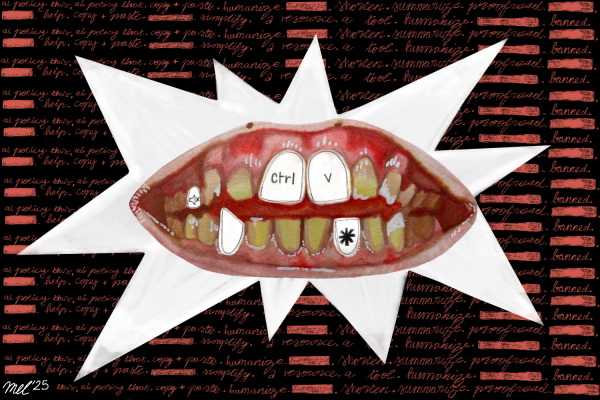It’s fall again, and I’m thinking about Franz Kafka.
Last year around this time, I read his work “Letters to Milena,” and if there is one thing Kafka can do well, it’s letter writing.
There is a certain passion and intimacy that bleeds through his letters to the married women with whom he’s in love: His prose is almost heartbreaking in its honesty and vulnerability, begging her to run away with him.
This is not something an email can do.

We can agree on the poeticism of the handwritten word, the act of physically putting hand to pen and pen to paper, the exchange of something that took a little extra time and a little extra effort.
It’s something that was thought out, planned, maybe visibly erased and corrected — as opposed to haphazardly backspaced out on a glowing screen.
Yes, I’m typing this from my charging computer under the fluorescent lights of the Boston University School of Theology library — but a girl can romanticize.
I’m feeling nostalgic for the time of more intentional language: We exist in a time where we verbalize every thought and feeling online, and it’s all fast, fast, fast. Everything is accessible and at our fingertips, and shooting off a text message — with typos and no punctuation — is quick and easy.
Technology is changing our language, and I do not love all of the effects. Em dashes are automatic AI accusations — so what, certain grammar is off limits now? We can’t add too much style, too much flavor to our words without it being rejected as inhuman?
Or, also awful, we’ve all forgotten how to use these pieces of punctuation properly, so the notion of using them correctly is too much for the world.
I sit in class, and I watch people use AI to generate emails for them. Presentations, too. I read the flat, cookie-cutter AI-generated sentences, and I’m bored.
And of course there’s the ever-present internet speak polluting our daily language. We’ve all seen a video using the phrase “unalive” to avoid being taken down or some other jargon to get past censorship.
And then it bleeds into real life.
I find myself saying things I pick up during my nightly Instagram doomscroll like some sort of social-media-regurgitating robot.
So, maybe this article is more of a cry for help for me to get off social media and go birding or hiking instead, but for now, I’m going to complain about how we need to find something beautiful in our everyday language.
I think we forget how powerful words can be when we are so constantly inundated with information left and right — in all forms of media.
These online tools make our lives easier in so many ways, and I will not ignore the countless scientific and technological advances the internet and AI has given us.
But they also make it easier not to try so hard.
We, as a society, are slipping down a nonchalance pipeline where we take shortcuts and refuse to care because somehow that’s cooler or less work. But I think, or I hope, we also all fundamentally realize how lonely and sad that is too.
Some of those shortcuts include AI-generating an email because it’s too much effort, or getting summaries of a book and its themes instead of actually reading it.
I also wonder if this is some sort of excuse to feed the massive binary between STEM-brained people and humanities-brained people.
I do not support this false dichotomy that you can only be left-brained or right-brained, good at science or good at creativity. I’ve noticed in my own classes and among my friends an attitude that says if you’re not a humanities major, you can use AI as a cop-out for more creative tasks like writing under the guise of being “not good at it” and deciding it’s “not as important” in your field anyway.
Yes, maybe writing an email isn’t that important. But these little shortcuts also seem indicative of a larger death of caring about your own work and the people that consume it.
We’re still communicating with other real people through these artificial screens, even if it’s easier to pretend that we aren’t.
We can talk about all the things we gain when it comes to AI, but what about the intentionality and the community that we lose?